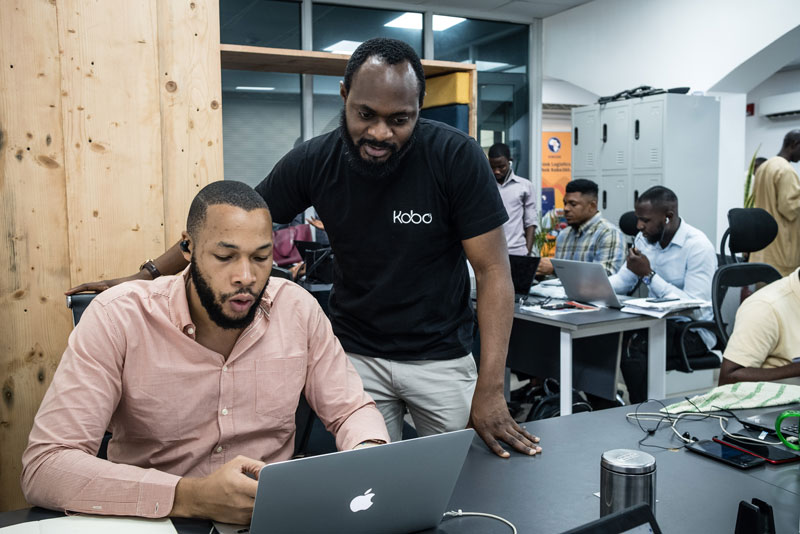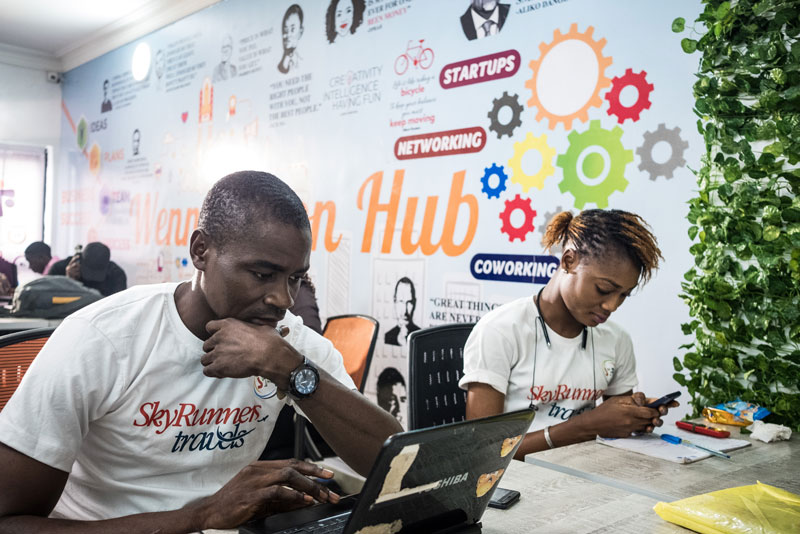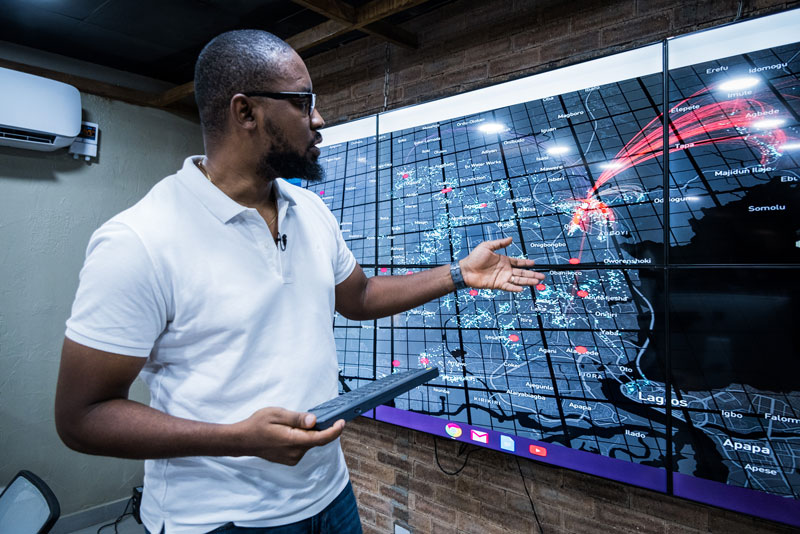Every morning, thousands of Nigerian truck drivers eagerly click the Kobo360 app on their mobile phones. They’re checking for a request to move cargo.
With a digital platform that seamlessly connects drivers to cargo owners, Kobo360 is reinventing the way goods are moved in Africa. In Nigeria, the company’s streamlined process has cut cross-country transport times from seven to only about three days.
The IFC investee, which facilitates 6,000 trips every month, expects its digital platform could grow to generate as many as 400,000 jobs over five years by linking and strengthening the cargo supply chain in Nigeria and beyond. In addition to Nigeria, Kobo360 currently operates in Ghana, Kenya, and Togo.
“A lot of changes have happened thanks to the growth in the digital economy, so we need to continue to push that—every single person benefits from it,” says Ife Oyedele II, co-founder of Kobo360.

Kobo360’s digital platform seamlessly connects drivers to cargo owners, cutting cross-country transport times.
Companies like Kobo360 are demonstrating how digital innovation is transforming Nigeria’s economy. And while reshaping the hauling industry is an exciting start, it’s only the tip of the digital iceberg: A joint World Bank/IFC report launched this week outlines the many other ways Nigeria’s private and public sectors could tap the country’s true digital potential and drive the economy forward.
“The best way to think about Nigeria’s digital economy is to think about unrealized potential,” says IFC Nigeria Country Manager Eme Essien. “Nigeria’s ICT sector has grown substantially in the last few years, but Nigeria could play a much more substantial role in the global digital economy—and that is the opportunity that we see.”
Digital Infrastructure
The report was produced as part of the Digital Economy for Africa (DE4A) initiative, an African Union initiative supported by the World Bank Group, which aims to digitally enable every African person, business and government by 2030.
Results showed that Nigeria, Africa’s biggest economy, could take a bigger bite of the global digital economy—worth an estimated $11.5 trillion in 2016—by strengthening its digital infrastructure, unlocking investment, boosting skills training for its youth population, and implementing reforms to create jobs and economic diversification.

At the wennovation hub in Lagos, entrepreneurs can share space and work together on solving common challenges.
The report’s main message: Nigeria could become a digital powerhouse if its public and private sectors work together to build a solid foundation for digital growth and investments.
For example, although Nigeria boasts sub-Saharan Africa’s largest mobile phone market, many rural areas still lack internet access. Longstanding problems are also jeopardizing Nigeria’s digital growth: the country has an active and growing eCommerce industry, but millions can’t access digital financial services because they lack basic identification records.
Nigeria’s Digital Future
Although these and other challenges won’t be solved overnight, Nigerian entrepreneurs are leading change and finding innovative solutions. They are launching tech-driven companies that have the potential to transform the delivery of financial services, skills training, logistics, and e-commerce, among others.
PiggyVest is one example. The company, launched in 2016, is expanding access to affordable financial services in a country where, according to the Global Findex Database, only 40 percent of the population has a formal account. It is already helping users save nearly $7.5 million a month through its popular mobile savings and investment app.

Boosting skills training for its youth population could help Nigeria take a bigger bite of the global digital economy.
For Odunayo Eweniyi, PiggyVest’s co-founder and chief operating officer, the explosion of digital financial services in Nigeria has only just begun:
“There has been a resurgence of digital financial services springing up all over the country, targeted at helping people be more disciplined or do more with their funds,” Eweniyi says. “So, while it is not a fully-grown ecosystem, we are well on our way.”
Join the conversation: #IFCmarkets
Published in November 2019
